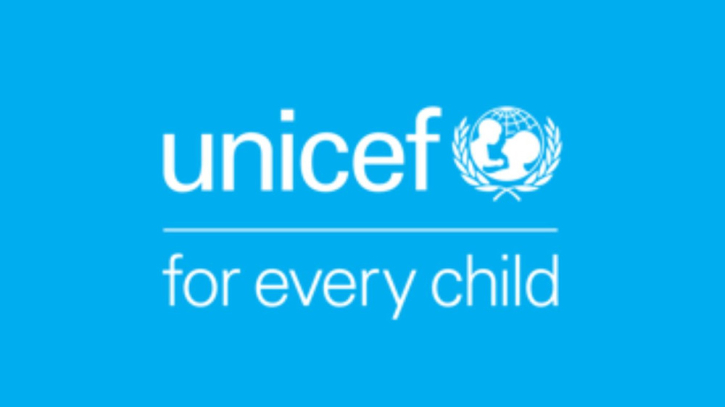
File photo
UNICEF Representative to Bangladesh Rana Flowers has expressed grave concern at the recent rise of sexual violence against children and said the UN body is stand ready to support the interim government in strengthening child protection systems and ensuring a safer Bangladesh for all children.
“I am profoundly horrified by the alarming rise in reported cases of sexual violence against children, especially girls, in Bangladesh over the last weeks. I am especially concerned with the recent surge in horrific cases of child rape and sexual violence, including in places meant to protect and nurture children like educational institutions,” she said in a statement on Sunday.
“Our hearts are especially heavy with the tragic death of the eight-year-old child from Magura a few days ago. Her death serves as a devastating reminder of how children, especially girls, are being subjected to grave violations of their fundamental rights and safety.”
Sadly, Rana Flowers said the death of child from Magura is merely one of many horrifying acts against children.
According to UNICEF's monitoring, she said a distressing number of children have reportedly fallen victims of rape and murder in recent months. From January 2025 to March 16, media and local human rights organizations recorded approximately 50 cases of child rape.
The trend seems to be getting even more worrisome - only on Monday 10 March, there were 7 children killed and 6 confirmed cases of violence. These statistics are more than just numbers; they represent shattered lives, profound trauma for survivors, and unimaginable grief for families and communities, reads the statement.
These incidents have sparked deep concern across the nation, raising urgent questions about the safety and protection of children and adolescents, especially in the hands of people they trust at home and in schools.
According to UNICEF estimates, 1 in 8 girls and women alive today globally experienced rape or sexual assault before the age of 18, and studies in Bangladesh confirm that perpetrators are often known to their victims.
In response to this crisis, “we welcome the order issued by the Government to bring the perpetrators to justice immediately, while insisting on calling rape, such a heinous crime, by its rightful name,” Rana Flowers said.
She said UNICEF acknowledges the Interim government’s commitment to a "zero tolerance" policy against violence against women and girls. “We also commend the Bangladesh Telecommunication Regulatory Commission (BTRC) for its efforts in removing harmful content from online platforms.”
However, while these measures are crucial, they must be part of a broader, sustained effort to address the root causes of violence against children.
To create a society where every child can grow up free from fear and violence, the UNICEF Representative said the interim government and all stakeholders need to take immediate and decisive actions to strengthen and invest in child protection systems.
She said the Interim Government & Law Enforcement should ensure immediate action and accountability for all reported cases of violence against children through strengthened investigation, prosecution, and judicial processes.
Establishing a specialised child protection unit within law enforcement, trained in trauma-informed investigations and victim-sensitive approaches, is fundamental. Additionally, expanding and professionalizing the social service workforce would provide gender-sensitive, child-centered support for survivors and their families.
To secure justice for victims and survivors, Rana Flowers said independent and gender-sensitive prosecutors must be appointed to ensure timely prosecution and hold legal actors accountable for meeting the government’s 90-day case resolution target.
The media also plays a crucial role in generating a safer society for children. Authorities should enforce ethical media and child safeguarding policies to protect children’s dignity and well-being during investigations and legal proceedings.
Concurrently, media outlets should commit to responsible reporting by safeguarding the identity, privacy, and dignity of child survivors and victims, avoiding sensationalism, and preventing further harm to victims, families and communities, added the UNICEF official.
“And very important, we need the good men of Bangladesh to stand against all forms of violence and every parent to ensure that boys and girls are raised to respect the other, not to have some false sense of entitlement to abuse.”
“The lack of safety and security for children contributes to the persistence of child marriage and other forms of violence. Every child has the right to grow up in a safe and protective environment, both at home and in public spaces. Child survivors must be shielded from further trauma, especially during investigations and legal proceedings,” Rana Flowers said.
Survivors deserve dignity, healing, and justice. It is essential to respect their right to privacy—by authorities, media, law enforcement, the judiciary, and the public— to support their recovery. For child victims, justice must be swift and uncompromising, ensuring accountability for those responsible.
At UNICEF, we remain steadfast in our commitment to child rights and protection and stand ready to support the interim government in strengthening child protection systems and ensuring a safer Bangladesh for all children.
TH

.png)







